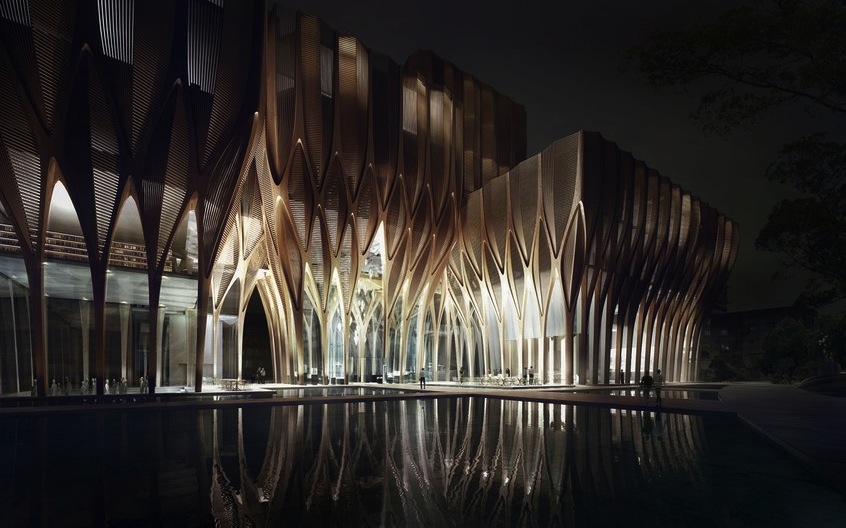Zaha Hadid Architects has been chosen to design an archive and research centre for the Cambodian genocide in Phnom Penh.
The scheme, to be called the Sleuk Rith Institute, will bring together a museum, a graduate school, a document archive and a research library.
The library will house the Documentation Centre of Cambodia, a collection of one million papers on the 1975-79 genocide.

Designs for the Sleuk Rith Institute (http://www.zaha-hadid.com)
Cambodia will never escape its history, but it does not need to be enslaved by it. Post-conflict societies have to move on– Youk Chhang, the executive director of the Documentation Centre of Cambodia
The scheme was conceived by Youk Chhang, the executive director of the Documentation Centre of Cambodia and a survivor of the “killing fields”. He said he hoped it would become a global centre for research into the causes and prevention of genocide, and a “focus for reflection, healing and reconciliation as well as an enlightening educational and research facility dedicated to commemorating the lives of the past by building a better future”.
Chhang, 53, said: “Cambodia will never escape its history, but it does not need to be enslaved by it. Post-conflict societies have to move on.”Â
Zaha Hadid said: “Our hope is that the Sleuk Rith Institute and its memorial park can have a truly transformative effect, bringing new life and a bright future to a site that holds traces of the great tragedies of the past.

Designs for the Sleuk Rith Institute (http://www.zaha-hadid.com)
The institute draws its name from sleuk riths – dried leaves that were used to document history and preserve culture.
The number of people killed in the genocide, which was instigated by the Khmer Rouge, is not known, but is generally estimated at between one-and-a-half to three million people.






